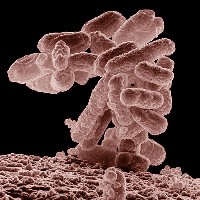Agilent Technologies Inc. in Santa Clara, California is collaborating with University of California in Davis, Food and Drug Administration, and Centers for Disease Control and Prevention on collecting a database of 100,000 foodborne pathogen genomes. The 100K Genome Project aims to sequence the genetic code of some 100,000 foodborne pathogens over five years, and make the information available in a free, public database.
The database is expected to provide the basis for tests to identify foodborne pathogens such as salmonella, listeria, and E. coli and provide information about their origin. The tests that result from the database, say its developers, could reduce the typical public-health response time to outbreaks of foodborne illness to days instead of weeks. Current methods require about one week from diagnosis to genetic analysis.
Professor Bart Weimer of the UC-Davis veterinary school will serve as director of the 100K Genome Project. UC-Davis will also conduct the genomic sequencing. FDA is expected to provide more than 500 completed salmonella whole-genome draft sequences, as well as thousands of other food pathogen strains for sequencing.
Agilent Technologies is a developer of instrumentation and diagnostics for biomedical and life sciences labs, and will provide its expertise, as well as funding for the UC-Davis part of the project. CDC will provide its foodborne disease expertise, as well as additional pathogen strains to be sequenced. The USDA’s Food Safety and Inspection Service is also expected to take part.
As sequences are completed they will be stored in the National Institutes of Health’s National Center for Biotechnology Information’s public database. UC Davis is forming a consortium of other stakeholders to support the 100K Genome Project, including federal, state and local public-health laboratories, food manufacturers, industries and academic organizations.
Identifying pathogens causing foodborne illnesses is only a part of the public-health response, say the developers. Food-safety officials still need to determine the contaminated foods or ingredients and where its source, which can be a challenge when multi-ingredient foods are involved or the same ingredient is sourced from multiple suppliers around the world. The genetic information in the new database, with geographic information about the pathogens can help public health officials more quickly pinpoint the source of contamination responsible for a foodborne outbreak.
Read more:
- Biotech, Genome Companies Partner on Microbe Outbreaks
- DNA Bar Code Identifiers Developed for Species Tracking
- Agilent to Develop Salmonella, Fish Species Tests for FDA
- Study: Food Scares and Product Recalls Increasing
* * *


 RSS - Posts
RSS - Posts
You must be logged in to post a comment.